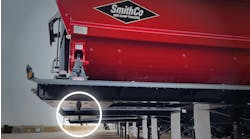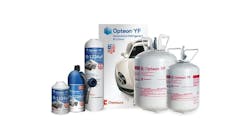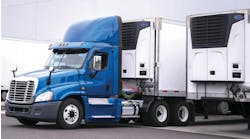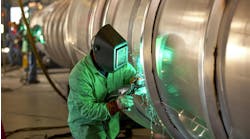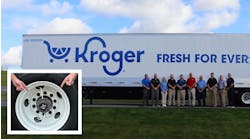Wabash National made various Meritor products standard or preferred options on its dry and refrigerated van trailers, Meritor said, strengthening the company’s position as a supplier to the trailer industry.
The recently signed three-year agreement takes effect Jan. 1, 2019, and positions Meritor’s loose axles as standard equipment designed to reduce weight and offer structural advantages, contributing to improved fleet productivity through increased fuel efficiency and payload capacity.
The Meritor Tire Inflation System (MTIS) also was selected as the preferred automatic tire inflation system. Meritor air disc brakes, along with the Meritor Trailing-Arm (MTA) suspension, hubs, drums and slack adjusters, and Meritor’s new MTec6 large-diameter axle, which provides a 40-pound weight savings to a standard axle, are optional in all Wabash configurations.
“We greatly value Wabash as a long-term customer,” said Dave Pritchard, general manager of trailers for Meritor. “We appreciate Wabash selecting Meritor for this important business and look forward to beginning this new phase of our relationship.”
For more than 30 years, Meritor has supplied a variety of trailer axle and braking systems to Wabash, one of the industry’s largest manufacturers of trailers for traditional van and vocational configurations across multiple applications. Meritor has engineered and manufactured trailer suspensions, axles and brakes for more than 60 years, building more than 10 million trailer axles that incorporate features to improve quality, extend life and reduce maintenance.
More than 8 million fleet tires are currently protected by MTIS, Meritor said. Almost one in every three trailers built today is specified with the tire inflation system. According to the Federal Motor Carrier Safety Administration (FMCSA), and US Environmental Protection Agency (EPA) studies, tire inflation systems extend tire life by 10% and increase fuel economy an average 1.4%.
MTIS also can decrease maintenance costs due to longer intervals between retreads and less time spent on manual pressure checking and filling.


